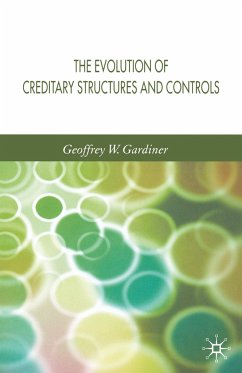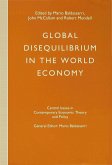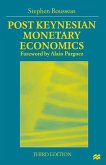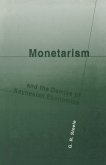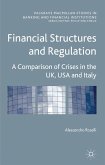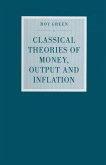The author suggests that governments use faulty methods for regulating credit and argues the use of credit multipliers. He argues for a rejection of the theory of the investment multiplier because investment can reduce employment, and will lower prices. The productive resources it releases require new credit creation to employ them.
'In this epoch-making book for banking and credit theory, Geoffrey Gardiner dismantles what remains of today's mainstream monetarist theory just as Thomas Tooke laid waste to Ricardian monetarism in the mid-19th century. He backs it up with a vast, and entertaining, historical and empirical exposition of the fallacies underlying much of today's mainstream monetarist analysis by using his experience as a leading banker.' - Michael Hudson, Professor of Economics, University of Missouri, USA
'Geoffrey Gardiner's Preface begins with a quote from A. Mitchell Innes, 'Credit and credit alone is money.' In a brilliant and entertaining tour de force he leads the reader through the 'principal truths of monetary theory' that follow on from that simple statement. He insists that money did not originate in barter, arguing that from the beginning what people exchanged was not goods but promises to supply goods. He then embarks on a journey through the evolution of creditary structures and controls from Babylonian accounting to the Basle Capital Accord. He offers an integration of the credit approach of Innes and the state money approach of Georg Friedrich Knapp as an alternative to the 'miasma of Monetarism' that prevented development of a clear understanding of credit, money, and interest over the past half-century.' L. Randall Wray, Professor of Economics, University of Missouri, USA
'Geoffrey Gardiner's Preface begins with a quote from A. Mitchell Innes, 'Credit and credit alone is money.' In a brilliant and entertaining tour de force he leads the reader through the 'principal truths of monetary theory' that follow on from that simple statement. He insists that money did not originate in barter, arguing that from the beginning what people exchanged was not goods but promises to supply goods. He then embarks on a journey through the evolution of creditary structures and controls from Babylonian accounting to the Basle Capital Accord. He offers an integration of the credit approach of Innes and the state money approach of Georg Friedrich Knapp as an alternative to the 'miasma of Monetarism' that prevented development of a clear understanding of credit, money, and interest over the past half-century.' L. Randall Wray, Professor of Economics, University of Missouri, USA

